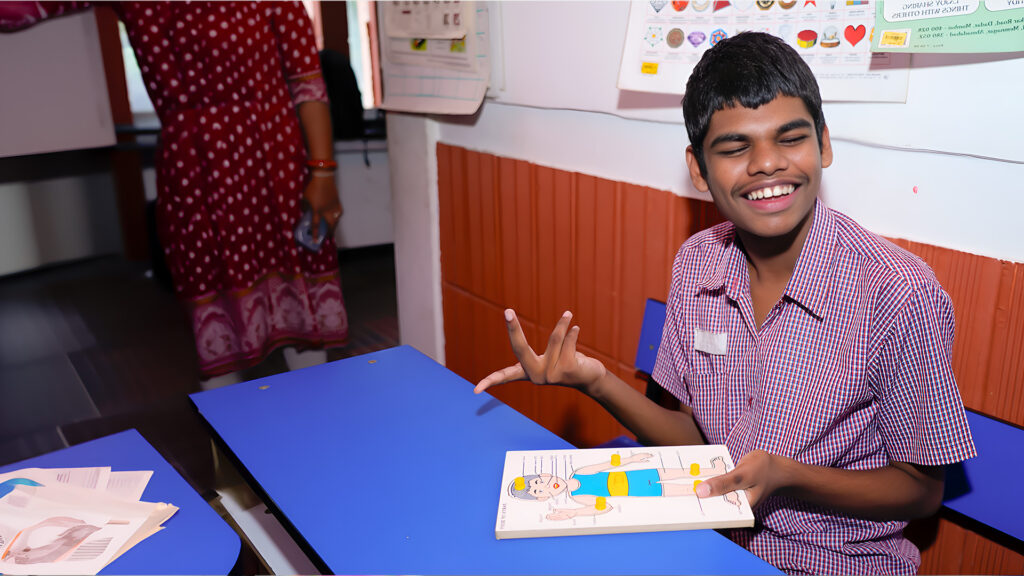AMC is among the oldest organizations working with people with Intellectual Developmental Disorder (IDD).
But what exactly is IDD? ‘Intellectual disability is a condition that limits intelligence and disrupts abilities necessary for living independently. Signs of this lifelong condition appear during childhood. Most people with this will need some degree of assistance throughout their lives. Support programs and educational offerings can help with managing symptoms and effects.’ (Cleveland Clinic). Across the world, it affects 1% to 3% of children and is slightly more common in men than in women.
IDD typically involves difficulties in different skill sets, including academic skills, social skills and domestic skills.
Intellectual disability is a complicated condition and it is usually not possible to pinpoint one reason. Multiple factors cause or contribute to it, and it’s usually not possible to say for certain why it happened.
IDD is classified in terms of severity as:
- Mild. About 85% people with IDD fall in the category of ‘mild’. People with this severity level have an average mental age of between 9 and 12. Their disability may interfere with learning or complex tasks. But with specialized interventions and support earlier in life, they can learn to manage these. They can often work and live independently.
- Moderate. People with moderate intellectual disability have an average mental age of 6 to 9 years. They can communicate using simple language and achieve a primary school level education. They may not be able to live independently without some support.
- Severe. People with severe intellectual disability have an average mental age of between 3 and 6 years. They use single words, phrases and/or gestures to communicate. They benefit from daily care and support with activities and daily life.
- Profound. People with this level of intellectual disability have an average mental age of 3 years and below. They usually communicate nonverbally, understanding some gestures and emotional cues. They may need support for all activities and aspects of life.
Fortunately, most persons with IDD can manage their lives, especially with appropriate early education. Some of the inputs recommended include:
- Education support and interventions. Tailored educational programmes can help children learn the basics of literacy and numeracy skills.
- Behavioral support and interventions. These kinds of inputs can help with learning adaptive behaviors and related skills to become more independent in every living skills, and in managing interactions with others.
- Vocational training. This critical input is towards people with intellectual disabilities learn work-related skills.
Persons with IDD need the support of families to do well. Hence support and education of the family is also essential.
AMC is committed to working with people with IDD and their families to enhance their quality of life and maximize their potential.
This article draws on Cleveland Clinic’s exposition on Intellectual Disability.

